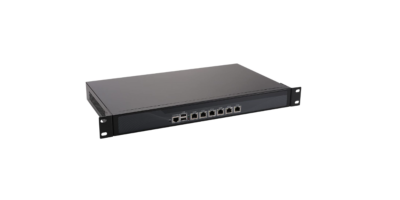Operational efficiency in healthcare is critical to ensuring that medical facilities provide high-quality care, streamline processes, and manage resources effectively. By improving operational efficiency, healthcare providers can minimize waste, reduce costs, improve patient satisfaction, and enhance overall service delivery. In this blog post, we will discuss six tips for improving operational efficiency in healthcare.
6 Essential Tips for Improving Operational Efficiency in Healthcare
With the ever-increasing demands for better healthcare services, it is vital for medical facilities to optimize their operations. Here are six tips that can help healthcare providers improve their operational efficiency:
1. Leverage Technology and Digital Tools
In today’s digital age, technology plays a vital role in enhancing operational efficiency in healthcare. From electronic health records (EHRs) to telemedicine, digital solutions can reduce paperwork, eliminate redundant tasks, and improve data accuracy. Investing in these tools enables healthcare providers to centralize patient information, streamline workflow, and make informed decisions faster.
For instance, an EHR system consolidates patient data in one place, allowing healthcare staff to access and update information in real-time. This minimizes the chances of errors associated with manual data entry and reduces the time needed to retrieve patient information. Similarly, telemedicine allows healthcare providers to deliver remote consultations, which not only saves time and resources but also expands access to care, especially for patients in rural areas.
Using the right technological tools is a key step to improve operational efficiency in healthcare by automating repetitive tasks, thus freeing up staff to focus on providing quality patient care.
2. Streamline Communication Channels
Effective communication is essential for operational efficiency in healthcare. In many healthcare facilities, inefficient communication between departments can lead to delays, misunderstandings, and ultimately, patient dissatisfaction. To combat this, hospitals and clinics should streamline communication channels and establish clear protocols for sharing information.
Implementing a centralized communication platform that connects doctors, nurses, administrative staff, and other departments can be an effective solution. For example, instant messaging systems or team collaboration apps can help staff share patient updates in real time, discuss case details, and coordinate tasks more efficiently. Additionally, creating a culture where employees feel comfortable communicating openly can lead to quicker problem resolution and a more cohesive working environment.
When staff have direct and timely access to information, they are better equipped to make decisions and carry out their duties effectively, thereby improving operational efficiency in healthcare settings.
3. Optimize Staff Scheduling and Resource Allocation
Human resources are the backbone of any healthcare organization. However, poor staff scheduling and inefficient resource allocation can lead to staff burnout, increased operational costs, and subpar patient care. By implementing effective scheduling practices and optimizing resource distribution, healthcare organizations can maximize the productivity of their workforce while preventing burnout.
A powerful strategy to improve operational efficiency in healthcare is using scheduling software that automates the process of creating shifts, tracking attendance, and forecasting staffing needs. These tools can ensure that healthcare providers are adequately staffed based on patient flow, seasonality, and peak hours. They also help minimize overstaffing or understaffing, ensuring that resources are used efficiently.
Additionally, cross-training staff to perform multiple roles can increase flexibility in staffing and reduce the burden on individual employees. For instance, a nurse trained in administrative duties can step in to handle paperwork during busy hours, thus contributing to overall efficiency.
4. Standardize Processes and Reduce Waste
Healthcare facilities are complex organizations with numerous processes that must be carefully managed. Standardizing processes ensures consistency, minimizes errors, and reduces the time required to complete routine tasks. One effective way to achieve this is by adopting lean principles, which focus on eliminating waste and optimizing workflows.
Implementing standardized protocols, checklists, and guidelines helps healthcare providers reduce unnecessary steps and ensure that procedures are carried out in the most efficient way possible. For example, standardizing the process for patient admissions and discharge can reduce waiting times, improve patient flow, and prevent bottlenecks in service delivery.
Reducing waste is another essential part of improving operational efficiency in healthcare. This can include eliminating unused supplies, reducing duplication of tasks, and cutting down on unnecessary tests. Conducting regular audits to identify inefficiencies and areas of waste allows healthcare administrators to make data-driven decisions and continuously improve processes.
5. Focus on Patient-Centered Care
Patient-centered care is not only important for improving patient satisfaction but also has a direct impact on operational efficiency. By prioritizing the needs and preferences of patients, healthcare facilities can create a more streamlined experience that reduces waiting times, improves outcomes, and enhances overall satisfaction.
Healthcare providers should invest in patient engagement tools, such as patient portals, where individuals can book appointments, access their medical records, and communicate with healthcare professionals directly. Patient-centered care approaches often involve adopting personalized care plans, providing clear instructions, and setting realistic expectations. When patients have easy access to their information and are well-informed about their care plans, they are more likely to adhere to instructions, leading to better outcomes and fewer repeat visits.
A study from the Journal of Medical Internet Research indicates that EHR integration has reduced diagnostic times by up to 25% in hospital settings, directly improving patient care timelines.
6. Implement Data-Driven Decision Making
Data is a powerful tool for improving operational efficiency in healthcare. By analyzing data on patient flow, treatment outcomes, staff performance, and resource usage, healthcare administrators can identify areas for improvement and make informed decisions to optimize operations.
Implementing data analytics solutions allows healthcare organizations to collect, process, and interpret large volumes of data. This data can reveal trends, such as peak admission times, frequent patient complaints, or common bottlenecks in patient flow. With this insight, administrators can make targeted improvements, allocate resources more efficiently, and anticipate patient needs.
For example, predictive analytics can help healthcare providers forecast patient volumes, allowing for better planning of staff schedules and resource allocation. Additionally, using data to track key performance indicators (KPIs), such as patient wait times and staff productivity, enables continuous monitoring and helps set benchmarks for operational efficiency.
Conclusion
Operational efficiency is crucial for healthcare organizations aiming to provide high-quality care while managing resources effectively. By implementing these six tips—leveraging technology, streamlining communication, optimizing staff scheduling, standardizing processes, focusing on patient-centered care, and using data-driven decision-making—healthcare providers can make significant strides toward improving operational efficiency in healthcare.
At MedicalITG, we provide comprehensive healthcare IT solutions and expert guidance, we aim to help healthcare providers streamline processes, improve outcomes, and enhance patient satisfaction. With the right tools and strategies, operational efficiency in healthcare can be achieved and sustained for long-term success. Contact us today to learn more about how we can help your healthcare business! Call us on (877) 220-8774 or email at info@medicalitg.com.










